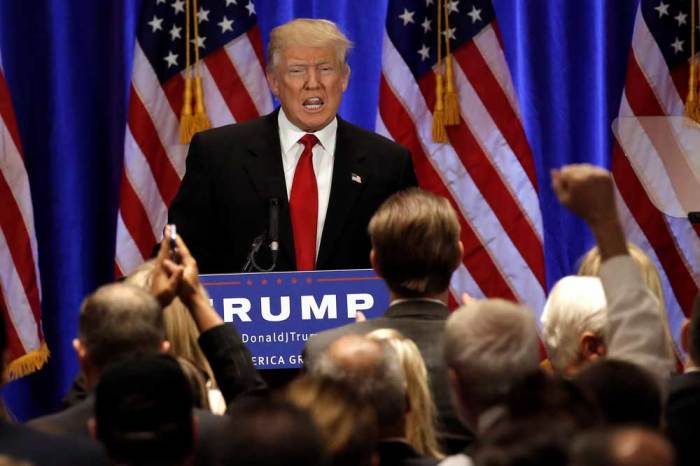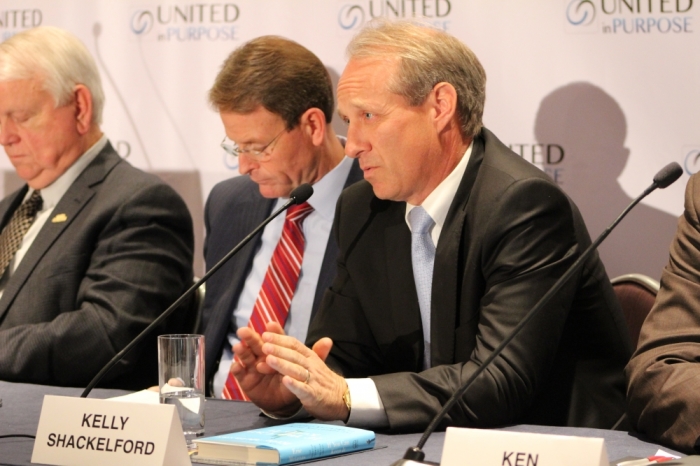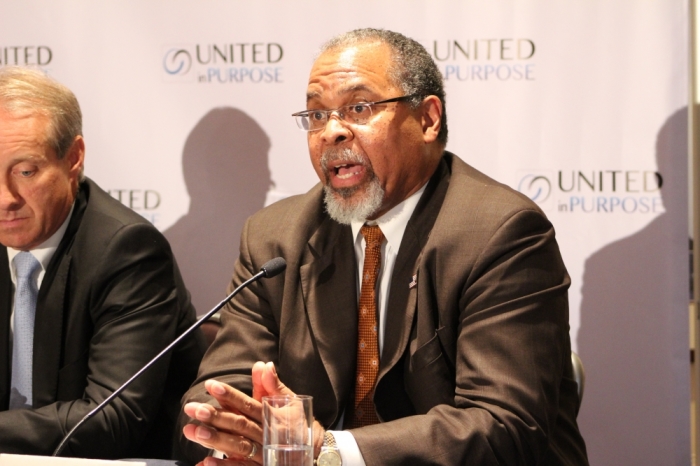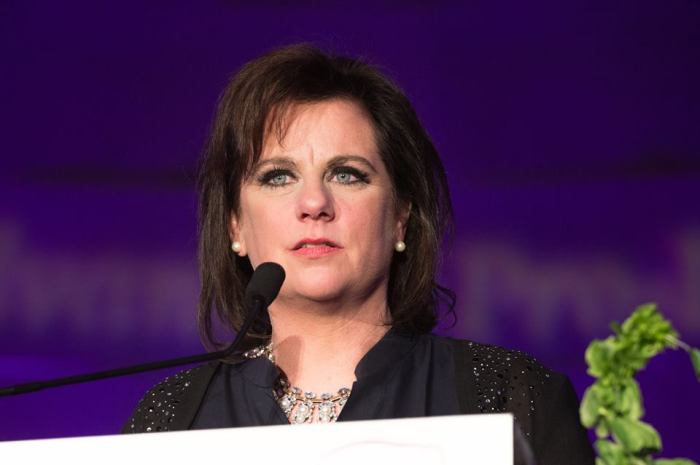Trump Convinces Evangelical Leaders He'd Be Better Than Clinton at Defending Religious Freedom

NEW YORK — While many of them said they still weren't ready to endorse him for president, presumptive Republican presidential nominee Donald Trump appears to have sufficiently convinced a gathering of more than 900 conservative Christian leaders that he is the best choice for protecting religious freedom.
At a press conference after the private meeting in Times Square, New York, between Trump and the leaders billed "A Conversation About America's Future with Donald Trump and Ben Carson," Kelly Shackelford, president and CEO of First Liberty Institute, said religious freedom was the top concern among the group and Trump's conversation on the issue was "genuine."
"One of the things we didn't mention and I thought I wanted to make sure we did, is that over 50,000 questions were submitted and by far the most important issue to everyone was religious freedom. And when that was communicated to Donald Trump, he said 'in light of what I'm seeing it doesn't surprise me at all' and he really connected with that which is part of, I thought, how the conversation was a real genuine conversation," said Shackleford, whose organization is the largest legal firm in the nation dedicated exclusively to protecting religious freedom for all Americans.
"I think a lot of people outside don't realize the battle, as a person who's been doing religious freedom work for 27 years, I can tell you that what we're seeing is unlike anything we've ever seen in this country and we're literally in a battle for whether the whole concept is gonna be really given away. There are people who say now it gets in the way of issues and things that they want to do," Shackleford said.

"It's a cultural war somewhat and it's so crazy now that we have nuns who have to defend their right to not give a sterilization to the nuns or abortion pills to the nuns. It's gotten kind of crazy and I think people realize that. And this wasn't just us, this was everybody who submitted questions. The same thing was coming up and as a group that has defended all faiths and will defend all faiths I can tell you its religious freedom for everyone or its religious freedom for no one," he added.
The religious freedom discussion erupted at the press conference after the group of conservative leaders present were asked by a reporter to explain what religious freedom means for Muslims in America.
"Within the context of the American Constitution, religious liberty means that people have a right to practice their religion in the public square as long as it doesn't become a violation of anybody else's right to live or to in fact practice their religion," replied Ken Blackwell, senior fellow for human rights and constitutional governance at the Family Research Council.
He explained that based on that understanding, and what Trump told the gathering in the meeting, he was satisfied that the presumptive Republican presidential nominee would be a much better defender of religious freedom than Democrat Hillary Clinton.
"Look, the reality is this is about public policy and what I said to you earlier on, I'll speak for myself, I was more interested in hearing Donald Trump say that he was willing and ready to defend religious liberty, not just for Christians but including for Christians in the public square. That religious liberty is different than the right to worship within the confines of our churches. It was about being able to practice our beliefs in the public square," said Blackwell.

"This wasn't about converting him to become your firebrand evangelical. This wasn't even about making him a stone-ribbed conservative. This was about hearing as the leader of America, as a leader in the free world, he had a fundamental understanding that there was a relationship between the reach and power and scope of government and others' religious liberty and he satisfied that concern in this conversation today," Blackwell said.
The reporter who asked the question pointed however to Trump's earlier statement calling for a ban of Muslims and Blackwell interjected quickly.
"I've heard him refine that statement. You're saying you haven't heard him refine that statement?"
"I've heard him refine that statement but …" the reporter began before Blackwell interrupted.
"A conversation would suggest those of us who figure and believe that needs to be refined more to be consistent with the concept of religious liberty will be in that conversation. We are not going to in fact throw him overboard for somebody who we know from a policy standpoint is part of an administration and part of a mindset that is on the attack on religious liberty and particularly the practice of our faith by Christians in the public square," Blackwell ended.
Trump also promised the conservative leaders in the meeting that his administration would repeal the Johnson Amendment — a piece of legislation prepared by former President Lyndon Johnson and passed by Congress in 1954 – often described as prohibiting charitable organizations (including churches) from endorsing political candidates.

"He spoke several times about the Johnson Amendment and repealing the Johnson Amendment and the Johnson Amendment applies to everyone's religious liberty and repeal[ing] it would apply to everyone's religious liberty," said Marjorie Dannenfelser, president of Susan B. Anthony List, a national pro-life group of more than 465,000 members nationwide.
And Pastor Mark Gonzales, founder of the Hispanic Action Network, said he was "excited" by Trump's pledge to repeal the Johnson Amendment.
"One of the things that was mentioned here today was that if he became president he was going to deal with the Johnson amendment which has been used to muzzle the church from speaking especially in election years. Pastors have something to say. They have the power of convocation to move the pews and this has been a tool that has been used to not allow that to take place especially when it comes to elections and even candidates. So we are excited about that particular piece," Gonzales said.
"A Conversation About America's Future with Donald Trump and Ben Carson," was organized by two inclusive non-partisan organizations: United in Purpose and My Faith Votes.





























